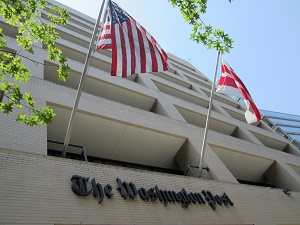Some April Fools' Day pranks are fun; others, not so much. Pfizer ($PFE) is unamused by an elaborate prank in which a fake press release was sent to and reported on by the Washington Post. The release, and the story, said the pharma giant was holding the lid on its drug prices.
 |
| Image courtesy of CC BY 2.0 |
The Post said it "briefly" published the story on pricing Thursday based on the purported press release but retracted it when it determined it had been the victim of an elaborate prank.
Pfizer, which has come under criticism for a practice of routinely raising drug prices, released a statement saying the release, which was linked to a fake website, should be disregarded. "Pfizer is investigating this matter and evaluating its legal options against the parties responsible. Pfizer is committed to engaging in an honest discussion and real dialogue about the issues that matter to patients."
According to the Post, the perpetrator went through a lot of steps to make the press release appear genuine. It said that release came from an email address that appeared to belong to a Pfizer spokesperson. The release was on a website with the domain pfizerinternational.com, which the Post said is similar to the drugmaker's real domain, but a fake. The release included a phone number, which also was a fake. The phone had a message saying Pfizer would not be commenting on the release and callers should leave a voicemail.
It is not a joke that Pfizer, along with many other drugmakers, have come under scrutiny for routinely raising the prices of its drugs at a time when there has been a public and political backlash to what consumers perceive as unreasonably high drug costs.
It was widely reported that Pfizer raised the prices on more than a 100 drugs on January 1. According to Deutsche Bank analysts, Pfizer boosted the list prices of dozens of meds, by 10.6% on average, with the largest increase for Quelicin, an anesthesia med, which went up by 42%. The attention is also coming at a time when Pfizer has also been highly criticized by government officials and some presidential candidates for its planned $160 billion merger with Allergan ($AGN), a maneuver it is taking in large part to lower its U.S. tax bill.
Of course pranks, by and on businesses, are part of the April Fools' tradition and Pfizer was not the only victim. Google today said it had killed its prank for this year--a Gmail feature that would prevent any replies to the sender of an email getting through--after reports that users had accidentally used the feature. There were reports that some people were fired from jobs for not following up on emails.
"Well, it looks like we pranked ourselves this year," Google's blog said.
- here's the Washington Post retraction (sub. req.)